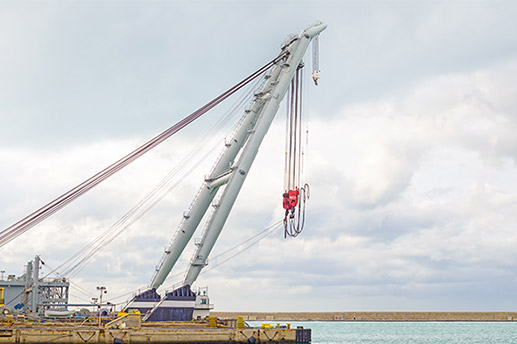Preventing chain reactions in corrosive environments

In the corrosive depths of the marine and chemicals industries, choosing parts that can stand up to the demands of the environment is tough. Chemicals and seawater cause metallic components such as power transmission chain to rust, dramatically shortening their service lives.
Corrosion resistant options are available, but chain strength is often sharply reduced when corrosion resistance is added due to the treatment processes that it is subjected to.
What do you do when you need a power transmission chain which can stand up to the demands of the industry, without losing any strength?
Introducing: Tsubaki Neptune
Tsubaki has developed its premium quality Neptune chain for this scenario: a highly corrosion resistant chain which has the same strength as an equivalent carbon steel chain.
 Neptune is suitable for use in applications which are subject to regular alkaline cleaning, as well as in wet environments. This means that it is ideal for use in the packaging, waste, food & beverage, marine and chemicals industries.
Neptune is suitable for use in applications which are subject to regular alkaline cleaning, as well as in wet environments. This means that it is ideal for use in the packaging, waste, food & beverage, marine and chemicals industries.
Featuring a unique multi-layer surface which combines a zinc base layer with Tsubaki’s innovatively developed special coating and resin coating, Neptune can deliver up to 2,000 hours of performance in even the most corrosive of environments.
One of the most stringent of all international chemical certifications, RoHS (restriction of hazardous substances) examines the hazardous chemicals found in industrial products, such as lead, mercury and arsenic. Neptune has been awarded this certification thanks to the environmentally friendly materials used to create the chain.
Neptune also helps to optimise sustainability of your business, thanks to its substantial increase in wear-life. This means that the chain is replaced less frequently, reducing the amount of raw materials, energy and CO2 required for replacement.
For more information on Tsubaki’s Neptune chain and how it could benefit your business, contact your local sales team today.
